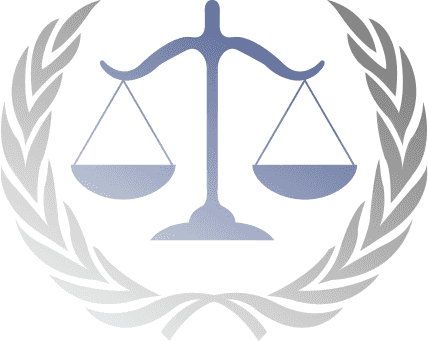
WASHINGTON, DC DEBT CONSOLIDATION ATTORNEYS
Compassionate Legal Guidance for Consumer Debt in DC, Maryland & Virginia
Consolidating your debt is a smart move when you are facing overwhelming financial pressure. Whether you have credit card debt, medical bills, or other forms of unsecured debt, you may be able to reduce your payments, interest, and stress by consolidating your debt.
At Belmont Law Firm, our experienced debt consolidation attorneys in Washington, DC, Maryland, and Virginia can help you determine whether debt consolidation is the right move for you. We can also help you create a plan to pay off your debt and put your finances back on track.
To learn more about consolidating your debt or to get started on your case, contact us online or call (202) 875-8445 today to speak with our Washington, D.C., debt consolidation attorney.
How to Consolidate Debt?
Consolidating your debt involves taking out a new loan to pay off all of your existing debts. You will then make one monthly payment to a single lender to cover the cost of the new loan and all of your other debts. This can be a smart move because it simplifies your payments and puts you in control of the pace at which you pay off your debts.
You can consolidate debt in Washington, DC, Maryland, and Virginia by:
- Taking out a personal loan from a bank or credit union
- Using a home equity line of credit to borrow against your home
- Taking out a mortgage to borrow against your home
- Consolidating debt with a credit card
- Consolidating debt through a debt management plan
Effective Strategies for Managing Debt Consolidation Loans
When you take out a debt consolidation loan, you will be required to make monthly payments on the loan until it is paid off. The amount of your payment will depend on the interest rate of your loan. The higher your interest rate, the more your payment will be.
You can pay off your debt consolidation loan by:
- Making your monthly payments on time
- Paying your loan off as quickly as possible
- Consolidating multiple debts into a single loan to reduce your monthly payments
Maximize Your Financial Health with Debt Consolidation
Consolidating your debt can have a number of benefits. It can help you simplify your payments and make them more manageable. It can also help you lower your interest rate and pay off your debt faster.
Some of the other benefits of debt consolidation include:
- Easier budgeting and spending
- Eliminating high-interest credit card debt
- Lowering your monthly payments
- Lowering your interest rates
- Paying off your debt faster
- Reducing the number of bills you must pay each month
- Using a home equity loan to pay off high-interest credit card debt


Debt Consolidation vs. Debt Settlement
Debt consolidation and debt settlement are two distinct approaches to managing and alleviating financial burdens, each with its own set of advantages and considerations.
- Debt Consolidation: Debt consolidation involves combining multiple debts into a single, more manageable loan. Typically, individuals take out a consolidation loan with a lower interest rate than the average rate of their existing debts. This simplifies the repayment process, as there is only one monthly payment to make. Additionally, debt consolidation may improve one's credit score over time, as it demonstrates responsible financial behavior.
- Debt Settlement: On the other hand, debt settlement is a negotiation process aimed at reducing the total amount owed to creditors. In this strategy, a debtor works with a settlement company to reach agreements with creditors, often resulting in a reduced overall debt. While debt settlement can provide a quicker resolution than consolidation, it may have adverse effects on credit scores, as settled debts are often marked as "settled" on credit reports.
The primary distinction lies in the approach to debt resolution. Debt consolidation focuses on streamlining payments and potentially lowering interest rates, whereas debt settlement seeks to reduce the actual amount owed. Individuals considering these options should carefully evaluate their financial situations, weighing the pros and cons of each method. Debt consolidation may be suitable for those seeking a structured and simplified repayment plan, while debt settlement could be a viable choice for those looking to settle debts for less than the full amount owed. Ultimately, the choice between debt consolidation and debt settlement depends on individual financial goals and circumstances.
How Our Debt Consolidation Attorney Can Help You
Here’s how we can assist:
- Evaluating Your Financial Situation: We will begin by thoroughly reviewing your financial circumstances, which includes all your outstanding debts, income, and assets. By examining your financial health, we can help determine whether debt consolidation is the right option for you or if other debt-relief options, such as bankruptcy, may be more appropriate.
- Determining the Best Debt Consolidation Method: There are several ways to consolidate debt, and choosing the right one is essential to achieving long-term financial relief. Whether it’s through a personal loan, a balance transfer credit card, or working with a debt management plan, we will provide guidance on the most suitable method for your specific needs. Each approach comes with its own set of qualifications, benefits, and risks, and we will walk you through these options carefully.
- Negotiating with Creditors: One of the most challenging aspects of managing debt is dealing with creditors. We can take on the burden of negotiating with your creditors on your behalf. We will work to secure more favorable terms, which include lower interest rates and more manageable repayment schedules, potentially saving you money over time. Having an experienced attorney negotiate with your creditors can improve the likelihood of reaching an agreement that works for both you and your lenders.
- Protecting You from Predatory Lenders and Debt Relief Scams: Debt consolidation is often targeted by predatory lenders or scams that promise unrealistic results. We will ensure that you are protected from fraudulent companies and ensure that the terms of any consolidation loan or program are in your best interest. With a legal professional by your side, you can avoid falling into debt traps that could worsen your financial situation.
- Drafting and Reviewing Debt Consolidation Agreements: Before committing to any debt consolidation loan or program, it's crucial to fully understand the terms of the agreement. We will carefully review any contracts or agreements to ensure that they are fair and legally sound. If necessary, we can also draft legal documents to safeguard your interests and ensure that your rights are safeguarded throughout the process.
- Creating a Long-Term Debt Relief Strategy: Debt consolidation is only one part of the journey toward financial recovery. Once your debts are consolidated, we can help you develop a long-term plan for handling your finances, improving your credit score, and staying on top of your monthly payments. Our goal is not just to consolidate your debt but to set you up for lasting financial success.
Contact Our Debt Consolidation Attorney in Washington, D.C. Today
Consolidating your debt is a complicated process that requires you to make important decisions about your financial future. It is crucial that you take your time to understand your options and make the right decisions.
Working with an experienced attorney can help you understand your options and make the best decision for your unique situation. At Belmont Law Firm, we have helped countless people in the Washington, DC, Maryland, and Virginia area consolidate their debt and move forward with their lives.
Ready to take control of your debt? Contact Belmont Law Firm today (202) 875-8445 for a consultation with our Washington D.C. debt consolidation lawyer.
Commonly Asked Questions
How can I know whether debt consolidation is the right choice?
Before considering debt consolidation, it’s important to thoroughly assess your financial situation, current debts, and long-term goals. Consolidating your debts can simplify your payments and potentially lower your interest rates, but it’s not the right solution for everyone. Our team at The Belmont Firm can guide you through the process by carefully reviewing your financial situation, discussing your options, and advising on the path best suited to your needs. Let us help you take control of your finances and move toward a more stable financial future.
What are the benefits of debt consolidation?
Some potential benefits of debt consolidation include lower interest rates, a simplified payment process with fewer due dates to manage, the possibility of improving your credit score over time, and potential savings on interest payments in the long-term.
Why Choose US?
Trusted Guidance That Exceeds Expectations-
Payment Plans Available
-
Free Consultations
-
Serving Washington DC Areas
-
Client Centered

We're Ready to Help You!
Contact Us Today for Your Free Initial Consultation



